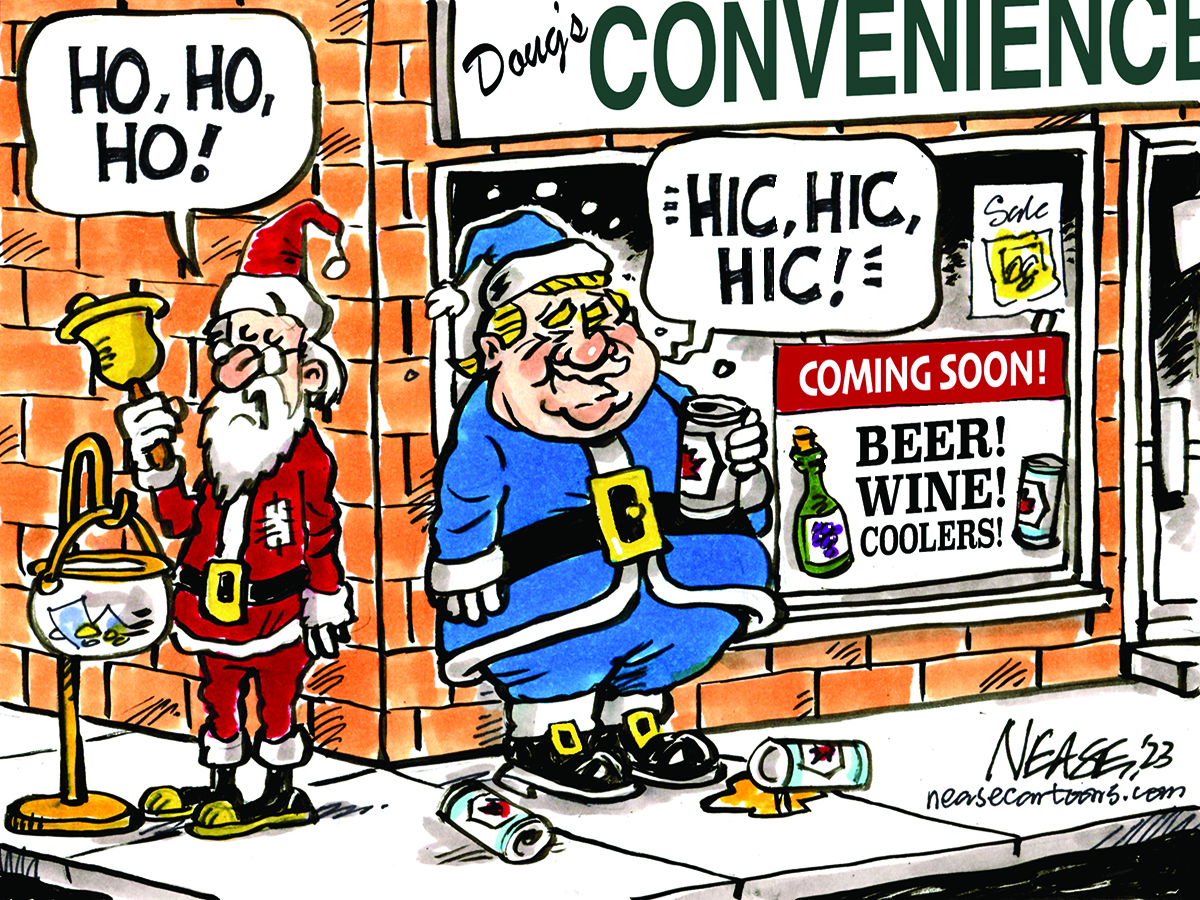We’re becoming more and more like the United States of America every day.
Last week, Premier Doug Ford announced that by January 2026, we will be able to buy beer, wine, ciders and other low-alcohol beverages at… well… damn near everywhere – more than 8,500 locations, according to the province.
Just like our neighbours to the south, this latest move by the province will allow us to go to the local gas station, convenience or big box store and grab some pints to enjoy with your buds on a Friday night.
And we’re not just talking about six-packs either. You’ll be able to grab a 12, 24 or even 30 pack of cold ones at participating stores. While there, we can grab some snacks, lotto tickets, motor oil, diapers and a loaf of bread.
Like any change, there are both good and bad to this one.
For example, this move makes it easier to pick up some beverages for a family gathering, or if you need to grab a bottle of wine at the last minute for a gift or occasion. Also, if this goes forward as designed, the province will “introduce competitive pricing to all private retailers to promote competition and a better deal for consumers.”
Easier access and lower prices? Sign me up!
So what are the negatives, you ask?
For one, it makes it easier to get booze. Some believe that by making it easier to get beer, wine or other drinks, it will lead to increased addiction, health problems, etc. And in times where our health care system is seemingly on the brink of collapse, this isn’t a good thing.
Then there’s the argument that the profits realized by the province through the LCBO are great – $2.54 billion in 2020-21 – so why would the province want to give that money up, or lessen it, during a time when money is needed most? Conservatives love money, so why would they be willing to give some of it up?
I don’t have an answer for that, other than Premier Doug Ford has been dead set on lowering booze prices since he took office (remember ‘buck a beer’, anyone?).
Personally, I have no strong thoughts one way or the other. What I do have an opinion on, however, is the following statement from the province in its Dec. 13 announcement:
“LCBO retail stores will maintain consistent pricing across the province to help ensure consumers do not pay more based on where they live, including in rural and northern Ontario. As they do in other provinces, retailers will have the option to set promotional prices consistent with relevant regulations. Minimum pricing policies will remain in effect to preserve standards for responsible consumption.”
The province can ensure consistent pricing throughout the province for a case of beer or a bottle of wine, but not for necessities like a loaf of bread or carton of milk…
Seems ass backwards to me, but according to a report from the University of Guelph, the government’s hands are essentially tied when it comes to food prices.
“While this might initially seem like a good idea, price ceilings actually end up taking money out of the system. If that money isn’t replaced (i.e. through government subsidies), products either stop being produced or make their way to other, more profitable markets. Currently, the Canadian government can’t afford these kinds of subsidies because of the debt accumulated from COVID-19 relief,” writes Dr. Michael van Massow, of the university’s department of food, agricultural and resource economics.
Dr. van Massow further claims that “price ceilings” are impractical for food, and are more likely to hurt famers, processors and retailers than they are to help consumers. He suggests governments attempt to tackle the root cause of inflation, but acknowledged some of those are beyond the control of government as well.
Any attempt to figure out the root cause of inflation on food prices usually results in a conversation resembling that meme online of various Spider-Men pointing at each other.
The consumer blames the grocery stores for jacking up prices to increase profits. The grocery stores blame supply chain disruptions and increased costs from the producer. The producer blames lower yields due to weather, and increased costs on fertilizer, fuel and the carbon tax. The federal government says we need the carbon tax to fight climate change, and tells the grocery stores to quit price gouging.
The circle is now complete.
Canada’s Food Report indicates that grocery prices will increase between 2.5 and 4.5 per cent next year, meaning more money out of our pockets for food.
On the bright side, we’ll have lower prices on Bud Light, White Claw and wine, so we can drown our sorrows that way. If only we could afford the loaf of bread to soak it all up when we are hungover.
***
Mike Wilson is the editor of Midwestern Newspapers. Comments and feedback are welcome at mwilson@midwesternnewspapers.com.



